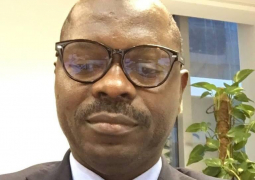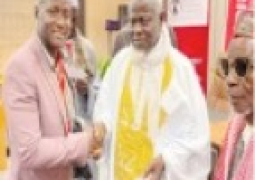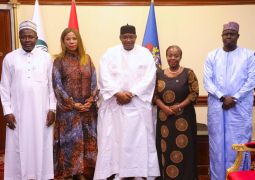
On June 8, 2025, the Gambia Police Force released an update on a series of unsettling incidents that unfolded in few parts of the country.
The first involved Fabakary Camara, a 33-year-old man found dead outside a residential compound in Brufut. Hours later, the lifeless body of Amadou Ceesay, a 39-year-old Senegalese national, was discovered in Brikama Subaward area. In a third case, images of another unidentified body circulated widely on social media before it was confirmed that the individual had died in a road traffic accident.
While investigations are ongoing, the unsettling nature and timing of these deaths have stirred widespread fear. Residents who spoke to The Point expressed deep concerns about the growing sense of insecurity in their neighborhoods.
“Honestly, my sense of safety has been shaken,” said Mariam Samateh, a university student. “I used to feel relatively secure in my neighborhood, but now I’m constantly alert. Even walking at night or letting my younger siblings go to the corner shop feels risky. It’s not just fear it’s a loss of trust.”
Many are calling for a stronger response from the country’s security apparatus. “It feels like the authorities only act after something terrible happens,” said a concerned parent. “We need more patrols, better community programs, and open communication with families. Our children and youths deserve to feel safe.”
Amid rising public anxiety, lawmakers have also weighed in. The National Assembly Member for Banjul North noted that Parliament recently passed the Criminal Offenses Act, aimed at deterring crime with tougher penalties.
“With progressive laws now in place, I’m hopeful the public will think twice before committing crimes,” the lawmaker told The Point. “We are also looking into increasing the budget allocation for security in the next appropriations cycle.”
However, he admitted that little has been done so far to provide mental health or psychosocial support to communities affected by such trauma.
“There are currently no mental health support systems being financed through the national budget. This is very unfortunate,” he said, adding, “The government must make this a priority.”
He also recommended that the National Assembly initiate a special inquiry or public hearing into unexplained deaths and the rise in violent incidents.
Mariama Kebbeh voiced her growing alarm over the recent surge in deaths and robberies across The Gambia, describing the situation as highly unusual and deeply unsettling. She admitted that the alarming increase in violent incidents has made her feel increasingly fearful about living in her own country. “I have never witnessed such a disturbing pattern of crime and loss of life before,” she said. “It’s becoming difficult to ignore, and honestly, it’s making me scared for my safety and that of my family.”
Mariama emphasised that the escalating insecurity is eroding the sense of peace and normalcy that Gambians once took for granted. She expressed frustration and disappointment, urging the government to urgently step up efforts to protect citizens. “The responsibility lies squarely with those in power to ensure that the people can live without fear,” she stressed. “If the authorities do not act decisively now, the trust between the government and the people will continue to break down.”
She called for stronger law enforcement, increased patrols, and community engagement programs to address the root causes of crime. “Our safety cannot be left to chance,” Mariama said firmly. “The government must recognize that the well-being of every Gambian depends on their commitment to maintaining peace and security throughout the country.”
Community and religious leaders are also stepping forward with advice and guidance. Ousman Keita, an Islamic scholar, said it is completely understandable for families especially parents to feel more anxious given recent events.
“Islam places high value on the protection of life. It is not only acceptable but wise to take measures to defend yourself when in danger,” he said. “The Prophet Muhammad (peace be upon him) taught that if you must travel somewhere unsafe, you may carry a weapon for protection as long as it is not used to harm others without cause.”
He added that Islam encourages people to learn self-defense and survival skills, as long as these are used to protect life and not to escalate violence.
“Islam is a religion that promotes peace, justice, and the preservation of life,” he emphasised. “Firm laws such as the principle of Qisas (an eye for an eye) are not about revenge but about justice and accountability. When people know they will be held fully responsible, it discourages wrongdoing and promotes a safer society.”
Read Other Articles In Headlines

Finance Ministry tasked to unveil monthly pricing transparency reports
Jul 1, 2025, 11:26 AM




